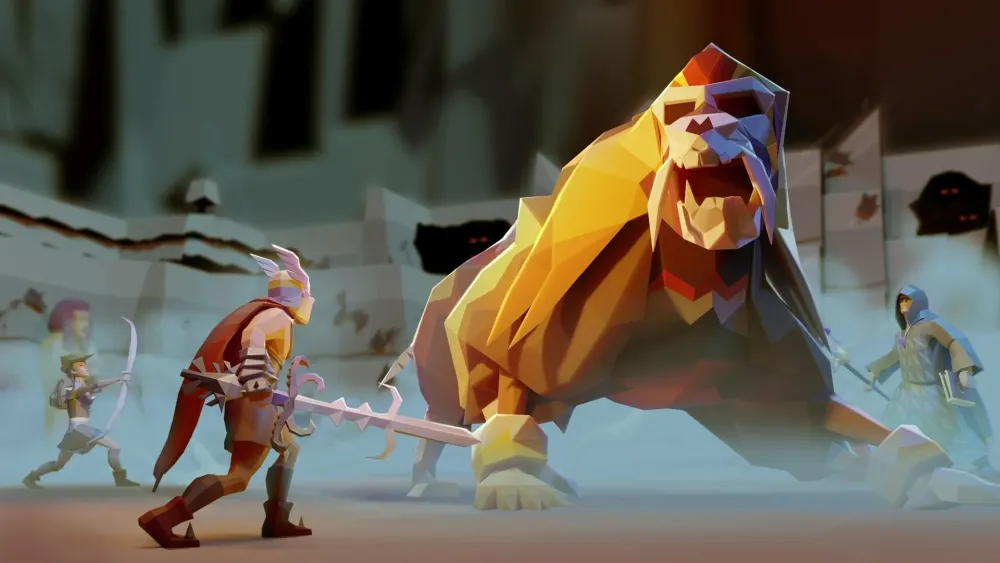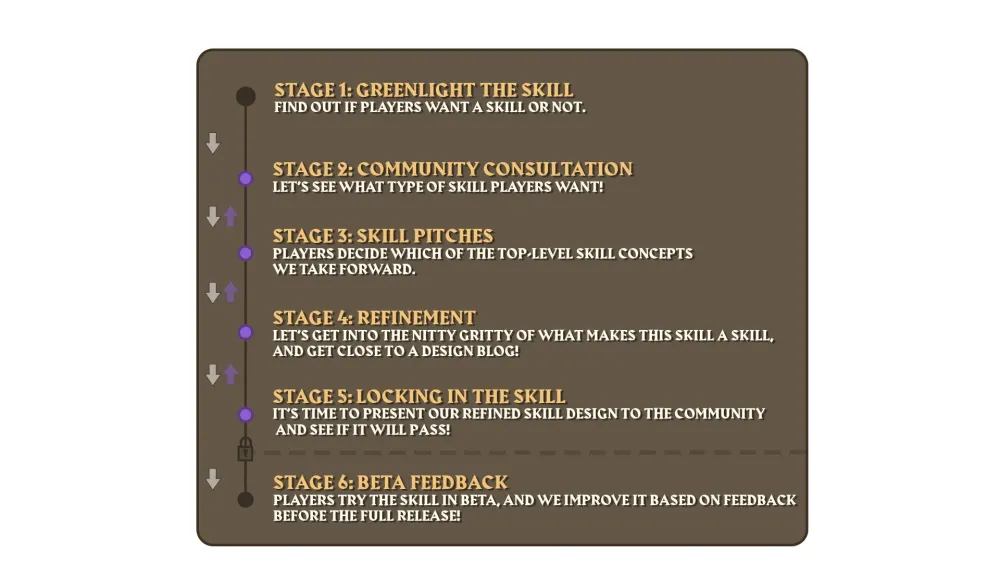Your cart is empty
When Did Old School RuneScape (OSRS) Release?

Old School RuneScape (OSRS) is a nostalgic MMORPG that appeals to players seeking a return to the game’s roots. Launched in 2013, it is a version of the original RuneScape, reflecting the gameplay and mechanics of its early years. OSRS was developed in response to community demand for a more traditional experience, offering a unique blend of adventure, skill training, and social interaction. Its enduring popularity showcases the game’s ability to adapt while retaining its core essence, making it a beloved title for both new and veteran players.
RuneScape was initially released on January 4, 2001, by Jagex, marking the beginning of an iconic era in online gaming. The game quickly gained popularity due to its engaging gameplay, expansive world, and the ability to interact with other players. Over the years, RuneScape underwent numerous updates, introducing new content, quests, and features that expanded its universe.
In 2007, Jagex made a significant decision to create a backup version of the game, preserving the mechanics and content as they were at that time. This version, known as Old School RuneScape, was launched on February 22, 2013, after the community expressed a strong desire for a return to the older gameplay style. The game was made possible through a poll, which allowed players to vote on the features they wanted to see included.
OSRS has since become a standalone title, regularly updated based on player feedback. Jagex maintains a close relationship with its community, often holding polls to decide the direction of new content, ensuring that the game evolves while remaining true to its origins. This model has contributed to OSRS‘s impressive longevity and player retention.
In addition to traditional gameplay, OSRS has introduced various events, competitions, and updates that enhance the player experience. The game features a wide array of skills to master, quests to complete, and a rich lore that captivates players. With its dedicated player base, OSRS continues to thrive, representing a significant chapter in the history of RuneScape and online gaming as a whole.
What is Old School RuneScape (OSRS)?

Old School RuneScape, often abbreviated as OSRS, is a massively multiplayer online role-playing game (MMORPG) developed and published by Jagex. Released on February 22, 2013, OSRS is essentially a revival of the early version of RuneScape, specifically the state the game was in back in 2007. This game appeals to players who cherish nostalgia and prefer the simpler mechanics and aesthetics of earlier MMORPGs.
OSRS was born out of a community-driven initiative. After the release of a new version of RuneScape that featured updated graphics and gameplay mechanics, many long-time players expressed their desire to return to the classic experience. Jagex listened to this feedback and decided to launch a separate server, which became OSRS. The game has since evolved while maintaining its retro charm, featuring regular updates based on player polls.
One of the standout aspects of OSRS is its commitment to preserving the original gameplay while allowing players to vote on new content, ensuring that the community has a significant say in its development. This democratic approach has fostered a loyal player base, making OSRS not just a game, but a community-driven experience that continues to grow and adapt.
Key Features of OSRS
Old School RuneScape boasts a variety of features that distinguish it from both the newer version of RuneScape and other MMORPGs. Here are some of its key features:
- Classic Gameplay: OSRS retains the mechanics and aesthetics of the 2007 version, providing a nostalgic experience for veteran players.
- Community Polling: Players have the opportunity to vote on proposed updates and changes, ensuring that the game evolves in a way that reflects the desires of its community.
- Skill Development: Players can engage in 23 skills ranging from combat to gathering, crafting, and more, allowing for highly customizable gameplay.
- Quests: OSRS features a rich library of quests, with engaging storylines and unique rewards that enhance gameplay.
- Player vs. Player (PvP): The game includes various PvP zones and activities, catering to those who enjoy competitive play.
- Frequent Updates: Regular content updates based on player feedback keep the game fresh and exciting.
- Cross-Platform Play: OSRS is accessible on multiple devices, allowing players to enjoy the game at their convenience.
These features contribute to the enduring popularity of Old School RuneScape, making it a beloved choice for both new and returning players looking for a classic MMORPG experience.
The Release Date of OSRS
Old School RuneScape, commonly known as OSRS, made its debut on February 22, 2013. This game was born out of a desire from the community to return to the classic gameplay experience that had captivated millions in the early 2000s. Jagex, the game’s developer, decided to give players what they wanted by launching a version of RuneScape that mirrored the game as it was in 2007.
The decision to roll back to this earlier version was met with excitement, as many players had nostalgic memories of their adventures in that era. Jagex conducted a poll to gauge interest, and the overwhelming support led to the development and eventual launch of OSRS.
Upon release, the game initially featured the same content and mechanics that players had experienced back in 2007. This included the original quests, skills, and combat systems, providing a pure and unaltered RuneScape experience. Over the years, OSRS has evolved, receiving numerous updates and new content, but it remains true to its roots.
In the years following its release, OSRS has maintained a loyal player base, with updates often influenced by community votes and feedback. This engagement has solidified its position as a beloved classic in the gaming world.
Community Reaction to the Release
The release of Old School RuneScape was met with an overwhelmingly positive reaction from the community. Players flooded forums and social media to express their excitement about the return to the classic gameplay that many had cherished. Here are some key points regarding the community’s response:
- Nostalgia: Many players felt a wave of nostalgia, recalling the simpler times of their youth spent playing RuneScape.
- Support for Jagex: The decision by Jagex to listen to player feedback was widely praised, reinforcing a sense of community.
- Polls and Updates: The use of community polls to decide on updates and content additions created a sense of ownership among players.
- Player Engagement: The game saw a surge in player engagement, with many returning to the game to relive their past adventures.
At launch, many players took to platforms like Reddit and the official RuneScape forums to share their experiences and excitement. The community’s enthusiasm was palpable, and it set the stage for OSRS to become a long-lasting and evolving part of the RuneScape franchise. Even years later, players continue to rally around OSRS, making it a staple in the world of MMORPGs.
7. Impact of OSRS on the RuneScape Franchise
Old School RuneScape (OSRS) has had a profound impact on the RuneScape franchise since its release. Launched in February 2013, OSRS was created in response to player demand for a version of the game that harkened back to its earlier days, specifically the pre-2011 game mechanics and graphics. This move not only revitalized interest in RuneScape but also set a new precedent for how player feedback could shape game development.
Here are some key points illustrating OSRS‘s impact:
- Player-Driven Development: OSRS operates on a unique polling system where players vote on updates, ensuring that the community has a direct say in the game’s evolution. This level of involvement fostered a strong sense of ownership among players.
- Revival of Nostalgia: The game tapped into the nostalgia of long-time players, bringing back familiar content while also introducing new features that respect the original spirit of RuneScape.
- Dual-Game Model: OSRS and the modern RuneScape (RS3) coexist, allowing Jagex to cater to different player preferences. This dual approach has helped expand the franchise’s player base significantly.
- Community Engagement: Events like OSRS‘s seasonal events and community challenges have strengthened player engagement and fostered a vibrant online community.
- Economic Impact: OSRS has contributed to the financial success of Jagex, with its subscription model and microtransactions generating substantial revenue for the company.
In essence, OSRS has not only enriched the RuneScape universe but has also established a model of community involvement that many other games now aspire to emulate.
8. Conclusion: The Legacy of OSRS
Old School RuneScape (OSRS) is more than just a nostalgic trip down memory lane; it has cemented itself as a significant part of gaming history. As we reflect on its legacy, several factors highlight why OSRS continues to thrive and capture the hearts of both new and veteran players alike.
Here’s a summary of OSRS‘s enduring legacy:
- Timeless Gameplay: The core gameplay elements of OSRS resonate with players who appreciate a classic RPG experience, complete with skill grinding and exploration.
- Community-Centric Approach: The game’s development model, which prioritizes player feedback, fosters a unique community that feels heard and valued.
- Continuous Growth: With regular updates and new content, OSRS remains dynamic and engaging, ensuring that it evolves while staying true to its roots.
- Cultural Phenomenon: OSRS has influenced many aspects of gaming culture, inspiring memes, fan art, and even competitive events that draw players from around the globe.
- Legacy of Innovation: OSRS has set a standard for how games can balance nostalgia with modern gaming practices, influencing new titles and their approach to player engagement.
In conclusion, the legacy of OSRS is not just about its past. It represents a living community and an evolving game that continues to thrive in the ever-changing landscape of the gaming world. As it moves forward, OSRS will undoubtedly remain a cornerstone of the RuneScape franchise and a beloved title for countless players.

